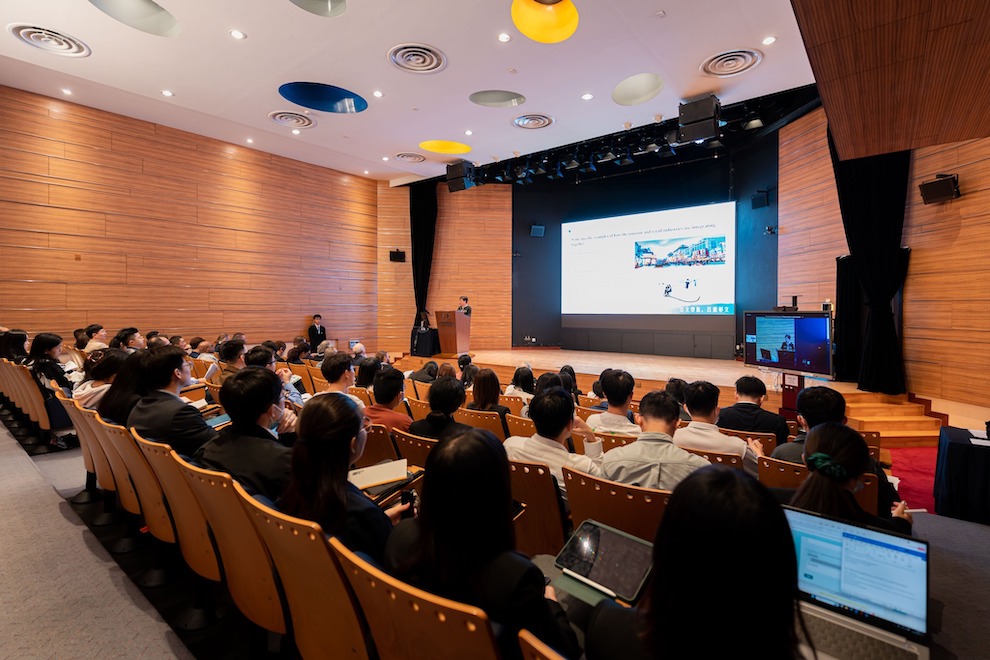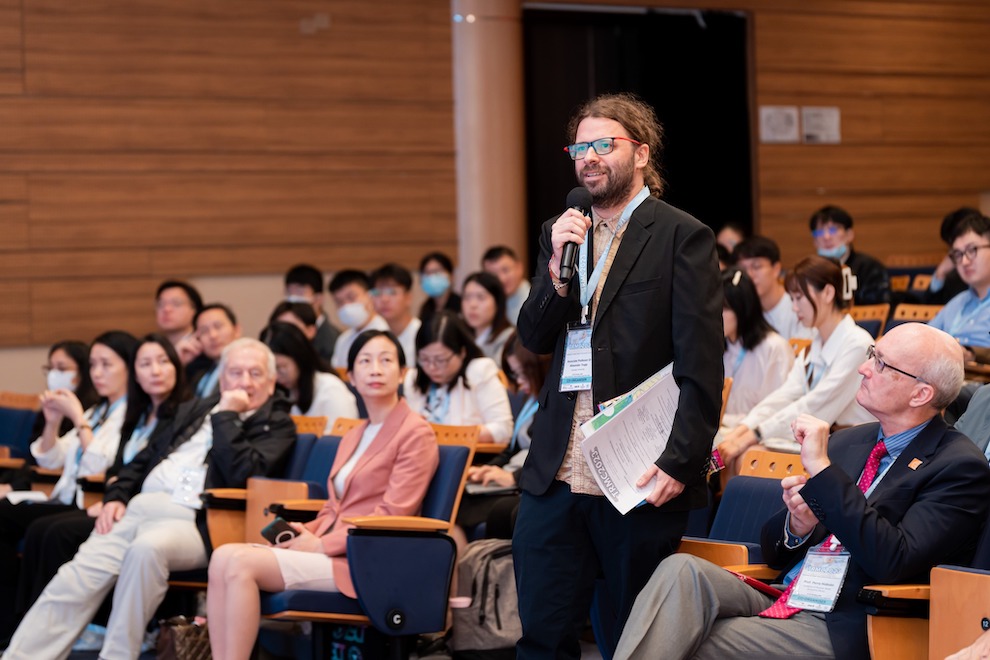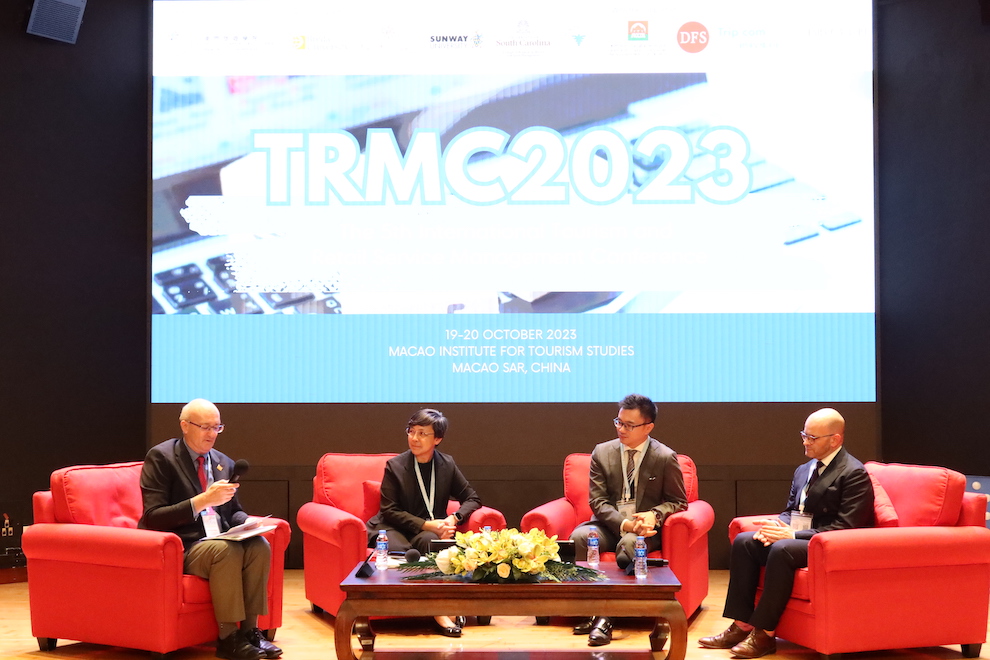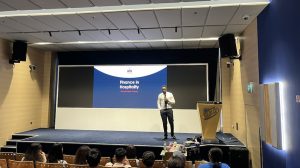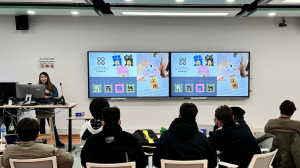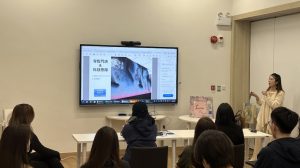Scholars drawn from around the world attended the 5th International Tourism and Retail Service Management Conference (TRMC2023), hosted recently by IFTM. The in-person event was also streamed online, advancing the conference series’ role as a platform to discuss the latest management trends for the tourism and retail sectors
The impact of artificial intelligence (AI) on retailing, the promotion of sustainable practices in tourism, and the role of social media as a marketing tool: these were some of the hot topics at the 5th International Tourism and Retail Service Management Conference, hosted recently by IFTM.
It was the first major international, face-to-face academic conference held at the Institute since the end, earlier this year, of the public health alert associated with the COVID-19 pandemic.
The event took place at the Mong-Há Campus on 19 and 20 October. It was in hybrid format, with in-person presentations and ones streamed online.
The conference attracted more than 90 participants. About a quarter were online attendees logging in from as far away as North America, Europe, and East Asia.
More than 50 research papers were presented at TRMC2023. The theme of this year’s edition was ‘Strengthening the synergies between tourism and retail in an uncertain era’.
The 2023 gathering represented a return to the conference’s roots, as the first edition had been held at IFTM in 2018.
TRMC2023 was organised in partnership with 5 other higher education institutions. They were: the College of Hospitality, Retail and Sport Management at the University of South Carolina, in the United States; Breda University of Applied Science, in the Netherlands; Nankai University, in Mainland China; Sunway University, in Malaysia; and Hangzhou City University, in Mainland China.
Industry insights
This year’s event included an industry panel session. It focused on emerging trends and challenges in tourism and retailing in the post-pandemic period.
One of the speakers was Ms. Maria Helena de Senna Fernandes, Director of Macao Government Tourism Office. She said a challenge of destination-management work was that consumers were increasingly using a variety of online resources to support their planning for a leisure trip.
Consumers tend to search for information not only from mainstream media and other travel websites, but also from digital platforms where users share their opinions, she explained. “When we talk about user-generated content online, that is not just official sources, but some [other sources] that can really influence people to talk about the destination and share [information],” she noted. This could create a “multiplier effect,” Ms. Senna Fernandes added, referring to the impact of online sources such as social media influencers.
The Vice President of Destination Marketing and Strategic Alliances at Shanghai-based multinational travel service conglomerate Trip.com Group, Mr. Edison Chen, also took part in the industry panel session. He discussed how trips mixing business and leisure – sometimes dubbed ‘bleisure travel’ – are on the rise. Mr. Chen stressed the need for companies to have a better understanding of demand for this type of product.
Mr. James Guntrip, Vice President of Store Operations in Macao for luxury retailer DFS, talked during the panel about how luxury retailers were ‘packaging’ shopping as a component of a destination experience. “Speaking of Macao, we would like to take the best of Macao and bring in culture and other elements” in order to build a “richer” shopping environment, he said.
Also joining the industry panel, Dr. Esra Calvert, President of Esra Calvert Consulting, a U.S.-based tourism consultancy, concentrated her remarks on tourism in the age of AI. She emphasised that “AI possesses astonishing capabilities; getting comfortable with it and exploring the opportunities for meaningful tourism growth is paramount”.’
The 2024 edition of the TRMC series is to take place at Breda University of Applied Science, in the Netherlands.



